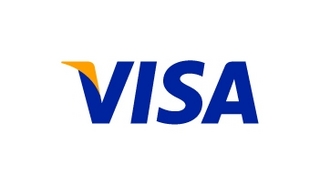Benchmarking Europe with Japan and the US
Published:
17 April 2001 y., Tuesday
Durlacher's recent report - UMTS Report: An investment perspective - identifies the global mobile wireless market as three distinct types of markets:
Mobile operator driven
Internet-driven
Technology-driven
Mobile operator-driven markets are characterized by countries with low internet penetration but high mobile services penetration (e.g. Japan). Due to the dynamics of the economies in these countries, network operators can influence content, and employ a closed portal strategy.
Internet-driven markets are composed of markets with high penetration of internet and relatively low penetration of mobile services. ISPs, portals, application developers and content providers who have matured in the internet world are dominant players in this market. The US is a good example of this type of market.
In Europe the mobile and internet markets are diverse. Northern Europe is a heavy user of both mobile communications and fixed internet access. In Finland for example, there is mobile penetration rate of 75% and fixed line internet access of 50%, according to Durlacher. Countries such as Germany, the UK and the Netherlands are quickly catching up to the Scandinavian countries in terms of both internet and mobile penetration. Southern European countries have high mobile penetration, but have low fixed internet access penetration. Durlacher reports that Italy, for example, had 12% penetration of fixed line internet and 65% penetration of mobile phones in late 2000.
NTT DoCoMo's position in Japan is unique in that it is the dominant operator in the mobile market and is well protected from entry of newcomers. Its dominant position has enabled the company to dictate the development of the technology enablers for the I-mode concept. This includes networks, terminals and applications. While NTT DoCoMo controls 59% of the mobile market, KDDI and J-Phone, two other large mobile operators in Japan, have advanced quickly into the mobile space. Japan leads the world in mobile data and internet services and will be the test bed for 3G services.
While the North American market leads the world in internet adoption and e-commerce, it lags when it comes to the mobile sector. The multiple technology standards and coverage issues have held back quality and service levels in comparison with leading regions in Europe. 3G license auctions have been postponed to 2002, which will delay the commencement of next-generation mobile services in the US. Another significant factor holding back the development of mobile wireless in the US is the fact that mobile operators employ the "Calling Party Pays" system.
Šaltinis:
emarketer.com
Copying, publishing, announcing any information from the News.lt portal without written permission of News.lt editorial office is prohibited.
The most popular articles
Software company announced new structure_ of it_s business.
more »
 The benefits and manufacturing process of CD & DVD Replication vs. CD & DVD Duplication.
more »
The benefits and manufacturing process of CD & DVD Replication vs. CD & DVD Duplication.
more »
 TheVisionWorld.com, a helpdesk software provider, today announced a new feature – “Migration Tool”.
more »
TheVisionWorld.com, a helpdesk software provider, today announced a new feature – “Migration Tool”.
more »
 Boston Interactive, a Boston-based web design and interactive marketing firm, is thrilled to announce their recognition for web design excellence from the Web Marketers Association. Six of Boston Interactive's website projects were found winners of the prestigious WebAwards Competition.
more »
Boston Interactive, a Boston-based web design and interactive marketing firm, is thrilled to announce their recognition for web design excellence from the Web Marketers Association. Six of Boston Interactive's website projects were found winners of the prestigious WebAwards Competition.
more »
 Agreement covers a broad range of consumer products for both companies.
more »
Agreement covers a broad range of consumer products for both companies.
more »
 BRUMAKS, offers the popular WebSite Tonightï, product, providing key features for those yearning to get involved in the .MOBI revolution.
more »
BRUMAKS, offers the popular WebSite Tonightï, product, providing key features for those yearning to get involved in the .MOBI revolution.
more »
 Google Inc. launched Google ChromeTM, a new open source browser intended to create a better web experience for users around the world.
more »
Google Inc. launched Google ChromeTM, a new open source browser intended to create a better web experience for users around the world.
more »
 Scott Guthrie, corporate vice president of the Developer Division at Microsoft, talks about how Microsoft Silverlight is helping the global broadcasting and media industry grow their presence – and viewership – on the Web.
more »
Scott Guthrie, corporate vice president of the Developer Division at Microsoft, talks about how Microsoft Silverlight is helping the global broadcasting and media industry grow their presence – and viewership – on the Web.
more »
 Survey of 16-27 year olds defines media consumption choices of the future.
more »
Survey of 16-27 year olds defines media consumption choices of the future.
more »
 Video explosion drives demand for innovation in video encoding, content transcoding and media mobility from Motorola.
more »
Video explosion drives demand for innovation in video encoding, content transcoding and media mobility from Motorola.
more »
 Visa has taken the next step toward making mobile commerce a global reality. The card company has launched four new programs to deliver payments and services via mobile devices.
more »
Visa has taken the next step toward making mobile commerce a global reality. The card company has launched four new programs to deliver payments and services via mobile devices.
more »